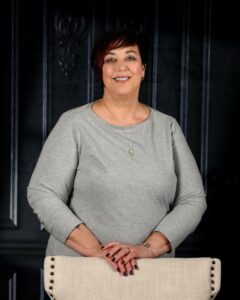by Jenny Powell MD
I’ve been reading since I was four years old. My older sister taught me whilst playing school (I had always thought that since my mother was an elementary school teacher, she had taught us both. I assumed wrong.). I remember reading my first chapter book in third grade, the age at which they tested our reading levels. I was reading at a 12th-grade level. This was trouble for my mom, as I’m sure you can imagine.
I went to medical school later in life, since I was thirty years old when the Lord called me to be a physician. Reading was extremely limited to medical texts and journal articles at that time and during family medicine residency. But when all that was over and I was a full-time family physician, I had a little extra time to read.
I’ll never forget the day I eagerly picked up a novel from a Christian publisher. This was gonna be good! I was nearly a fourth of the way through when I threw the book on the floor, exclaiming, “Well, congratulations! You just killed the man!”
You see, the character was an older man, a diabetic. He was found passed out and the paramedics were called. A fingerstick glucose was done and it gave a very friendly message: HI. So, okay, a non-ketotic diabetic coma. But then, what do you think the paramedics did? Give him insulin, of course! NO. They gave him more glucose. I couldn’t read any further.
The author had developed great scenes and already sympathetic characters. But at this point, I refused to read any further. I wrote the publisher instead. The story had been ruined for me, for there are some basic facts for which I cannot sustain belief. Bad Medicine is not just a great song by Bon Jovi.
Just a technicality, the publisher felt. They apologized, and sent me yet another title from their newly released contemporary fiction genre (it is a huge Christian publishing company that primarily published Christian non-fiction for use in churches). Without reading it, I donated it to my church library. When the television show ER came out, we were first year medical students. A group of us would get together and watch it. By our second year, we were disenfranchised and scoffed a lot. Of course they’re not wearing protective eyewear or masks with blood spurting on their face. Of course they have the chest Xray up on the viewer backwards. No would ever give that med for that condition. At least it wasn’t as bad as Chicago Hope, which used the words “bacteria” and “virus” interchangeably. CLICK. I’m out.
I know most people know SOME medicine. I also know that you can’t get two or three physicians in a room to agree 100% on anything when it comes to the “best” treatment. You might not even get them to agree on diagnoses (thus the “differential diagnoses” you may or may not have heard of). But if you’re going to have grandpa pass out from hyperosmolar hyperglycemia, at least double-check on emergency treatment and don’t accidentally kill off your character who isn’t supposed to die until they are in the hospital. At least that’s what I had to assume would happen, as I couldn’t bring myself to finish the story.
Considering how many readers are associated with the medical sciences in some capacity, have an expert in the field look over your manuscript for such glaring medical errors. Sometimes it is a minor incident that doesn’t impact the story. But in other cases, it can undermine your entire premise. You don’t want to lose those readers.
 Jenny Powell MD is a family physician, thanks to a call from the Holy Spirit, with a unique practice style and two busy offices, available to her patients 24/7. When not writing prescriptions, she works on her unpublished manuscripts, reads a lot of novels, and supports ACFW writers. Visit Jenny on her website and Instagram @jpowellmdauthor.
Jenny Powell MD is a family physician, thanks to a call from the Holy Spirit, with a unique practice style and two busy offices, available to her patients 24/7. When not writing prescriptions, she works on her unpublished manuscripts, reads a lot of novels, and supports ACFW writers. Visit Jenny on her website and Instagram @jpowellmdauthor.

Comments 5
As a writer of historical fiction, I’m very conscious of trying for historical accuracy, always with the fear that I might have missed something. Getting critiques from the ACFW loop helps a lot, and I run medical questions by a friend who teaches nursing.
Yes! When I write about anything medical, I ask my friend who is a nurse. She gives me the correct details. Same when I write about anything FBI or law enforcement related. It helps to have friends in various careers.
As a side note – please don’t call it a ‘safety deposit box.’ It is a SAFE deposit box. You’re welcome.
Not that you did, this is an FYI for anyone writing about banking.
My philosophy is that no matter the topic–medicine, historical events, police work, etc.–we must write realistically and plausibly in fiction. When readers spot obvious errors like the ones Dr. Powell described, they may wonder about the accuracy and reliability of any discussions of matters of faith in your work.
Yep. As a writer and lover of historical fiction, I get warm fuzzies when people do stuff right. I’ve researched everything from food to clothing styles for my historical period. What ticks me off the most is when the cover models on the books are dressed 300+ years later. Authors and publishers want to cut costs, but when a book is set in the 1100s or 1400s, and the model is rocking a 20th-century prom dress? Please. Kill me. Ugh. I’m also tired of seeing the same models on book covers within the same genre. It cheapens the idea that the model is portraying the hero/heroine when they are on multiple books. Money is tight, so when deciding which new release I’m going to pick up, the fallacies of the front cover are my deciding factor. It sounds cruel, I know, but what can I say? Something needs to change. As a reader, I want to feel the book is unique. As a writer, I don’t want anyone to snub my book for the same reasons. 🙂
Yeah, I think it’s wise to do our research when we’re writing about technical issues be it medicine, astronomy, or competitive swimming.